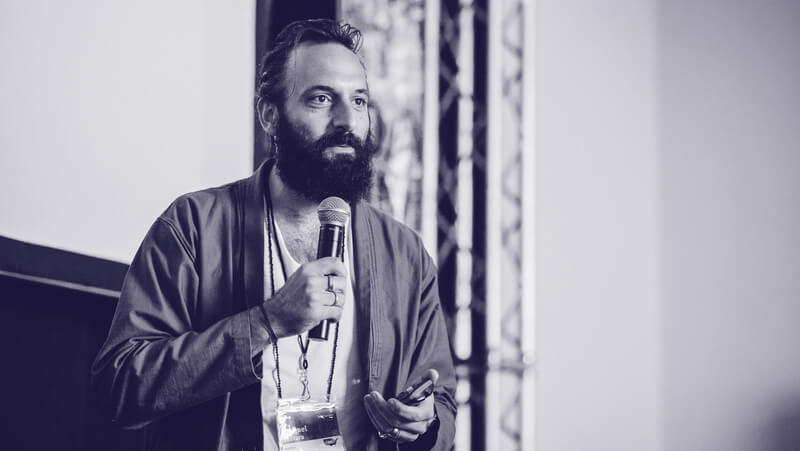Are you willing to change your point of view?
It’s a simple question, but it can take people a lifetime to consider. My work as a systems thinker has led me to explore a variety of methodologies, approaches, and frameworks geared at helping those considering this question to arrive at an answer. Through this work, I’ve found no approach has proven to be as effective as an innate skill within each of us, empathy.
Before you roll your eyes and assume I’m about to pay lip service to a concept that feels a bit overused and trite as of late, hear me out. We are, in ways, suffering from empathy fatigue within our zeitgeist alongside an actual, and somewhat ironic, societal empathy deficit. This is the paradox I’ve studied for the better part of a decade – the cries for “more empathy” coupled with resistance toward our own adoption of the practice. Everyone wants everyone else to practice empathy, but too few are willing to do the hard work themselves.
Before we get too far into this, I’d like to outline the three primary forms of empathy.
Affective empathy is what I think of as “golden rule” empathy. This is the most frequently referenced kind, which denotes a shared experience of emotion in response to someone’s current state of being. In other words, you’ve felt (at some point) an emotion very similar to what they’re feeling and this affects the way in which you respond to them. This is a difficult type of empathy to spread because it requires a good deal of self-awareness – which is a widely underdeveloped skill in our current society. It’s also a form of empathy that is difficult for those with spectrum personalities to readily embrace. It is perhaps too much to ask of society to fully embody this form of empathy.
Somatic empathy is a far rarer form of empathy. It appears most often within caregiver personalities and those who maintain organically high levels of empathy. It is effectively the ability to literally “feel into” the experience of someone else. A common manifestation of this would be the sympathy pains of a partner to a pregnant spouse. This too is difficult to practice at scale and, frankly, its benefits are dubious when it comes to affecting societal change.
However, there is a third type of empathy called Cognitive empathy, which is worth discussing more deeply. Cognitive empathy is the ability to suspend your own beliefs and sense of self, in order to fully embody the perspective of someone else. This does not happen at a distance. On the contrary, it requires inquiry and active discourse. We cannot simply guess how someone is feeling. No, to truly practice cognitive empathy we need to get to know others. We need to engage. We need to, in a word, apply empathy.
In my book, appropriately titled Applied Empathy, I offer accessible exercises that can act as points of entry for integrating cognitive empathy into our daily lives. One of the key methods that grounds this ostensibly heady idea within a tangible concept, is a series of archetypes. We all love this sort of stuff. I’d bet most of you reading have taken at least one personality quiz (you know the ones that tell you what Star Wars character or snack food you are most like). From Buzzfeed to Meyers-Briggs to Strengthsfinder to the Enneagram, we humans love a good diagnostic quiz that helps us to better understand ourselves.
We’ve created a version to help you better understand your empathic personality. Unlike many of these tests, however, our desire isn’t to compartmentalize you into a singular and specific “type.” We don’t want to pigeonhole anyone and say, “This is who you are.” Instead, we’ve introduced a series of archetypes that can be thought of as a kit of parts; something you can pull from depending on the context and the perspective required to meet any situation head-on. The ultimate aim is to help you become more deft and effective at perspective taking regardless of the circumstance.
The archetypes each have a corresponding behavior. Together, they help us become a more well-rounded and thoughtful empath. They include:
The Sage
Be present: Inhabit the here and now.
The Inquirer
Question: Interrogate assumed truths.
The Convener
Host: Anticipate the needs of others.
The Alchemist
Experiment: Test and learn at all costs.
The Confidant
Listen: Develop the ability to observe and absorb.
The Seeker
Dare: Be confident and fearless.
The Cultivator
Commit: Nurture with purpose and intentionally grow.
Take a moment to consider each of them. I’m confident that there are already a couple that feel like second nature to you. These are probably the areas where you’re naturally inclined to use empathy to perspective take, without even realizing it. What about the ones that feel less comfortable to you? The ones that made you think, “I’ve never really put myself into that type of behavioral state.” These are just as important as the strengths you’ve uncovered. As we work on skilling-up in these weaker areas, we become better able to understand others, and ourselves, more deeply than before.
In order to easily slip into the headspace of each of these archetypes, my team and I developed a deck of cards called, Questions & Empathy. Each question in the deck targets a specific aspect of the archetype and how it interacts with the others. My book details these questions alongside a series of exercises that I have seen time and again help individuals connect more deeply to a more empathic way of being.
The world is in a tumultuous time. Instead of being drawn together by global issues such as climate change, infectious pandemics, terrorism, the refugee crisis and more, we find our society becoming more and more polarized. Will applied empathy cure this problem? Not entirely. But it is a powerful step toward realizing that despite our differences, we also have so much in common. Consequently, there is a critical need to act with understanding toward each other in order to find common ground. Without it, we risk not only losing our side of the argument, but we also risk losing our humanity.



